 W
WRichard Aldington, born Edward Godfree Aldington, was an English writer and poet, and an early associate of the Imagist movement. He was married to the poet Hilda Doolittle (H.D.) from 1911 to 1938.
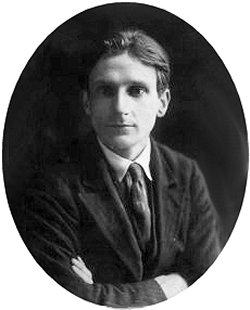 W
WEdmund Charles Blunden was an English poet, author and critic. Like his friend Siegfried Sassoon, he wrote of his experiences in World War I in both verse and prose. For most of his career, Blunden was also a reviewer for English publications and an academic in Tokyo and later Hong Kong. He ended his career as Professor of Poetry at the University of Oxford. He was nominated for the Nobel Prize in Literature six times.
 W
WSir William Robert Campion, was a British soldier, politician, and the 21st Governor of Western Australia from 1924 to 1931.
 W
WLieutenant-Colonel Archibald Alderman Chase was in Command of the 80th Field Company, Royal Engineers, and later, the 8th Battalion of the Royal Sussex Regiment during World War I. For his service in World War I, Chase was made a Companion of the Distinguished Service Order and was Mentioned in Despatches three times.
 W
WPhilip Lindsey Clark (1889–1977) was an English sculptor.
 W
WGeorge Loyd Courthope, 1st Baron Courthope,, known as Sir George Courthope, Bt, from 1925 to 1945, was a British Conservative Party politician.
 W
WMajor-General Sir John Davis was an Irish officer in the British Army who became General Officer Commanding the Southern District.
 W
WCaptain Arthur David Eyton-Jones was a British Army officer with the Special Air Service (SAS) during World War II, director of a tea company, landscape gardener and chaplain. He is best known for his involvement in Operation Tombola.
 W
WBrigadier Manley Angell James, was a British Army officer and an English recipient of the Victoria Cross, the highest award for gallantry in the face of the enemy that can be awarded to British and Commonwealth forces.
 W
WLieutenant-Colonel Gerard Evelyn Leachman, CIE, DSO was an English soldier and intelligence officer who travelled extensively in Arabia.
 W
WCharles Henry Wyndham, 3rd Baron Leconfield was a British peer, army officer and political figure. He succeeded his father as third Baron Leconfield in 1901.
 W
WWilliam John (Jack) Lyon was a New Zealand politician of the Labour Party. He was killed in World War II while serving with the 2nd New Zealand Expeditionary Force.
 W
WClifford Arthur Martin was an Anglican bishop. He was the fourth Bishop of Liverpool, serving from 1944 to 1965.
 W
WBrigadier General Francis Aylmer Maxwell, was a British Army officer in the Second Boer War and First World War. He was also a recipient of the Victoria Cross (VC), the highest award for gallantry in the face of the enemy that can be awarded to British and Commonwealth forces.
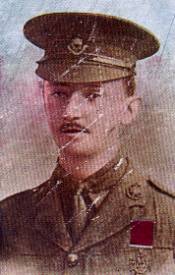 W
WEric Archibald McNair VC was a British soldier. He was a recipient of the Victoria Cross, the highest and most prestigious award for gallantry in the face of the enemy that can be awarded to British and Commonwealth forces.
 W
WBernard Marmaduke Fitzalan-Howard, 16th Duke of Norfolk, styled Earl of Arundel and Surrey until 1917, was a British peer and politician. He was the eldest surviving son of Henry Fitzalan-Howard, 15th Duke of Norfolk, who died when Bernard was only nine years old. His mother was Gwendoline Herries, 12th Lady Herries of Terregles, and he inherited her peerage when she died in 1945.
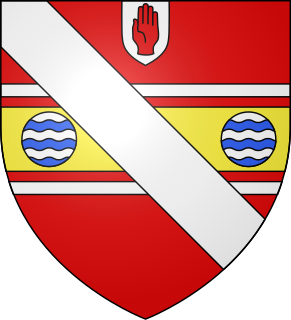 W
WSir George Francis Osborne, 16th Baronet, was an Anglo-Irish baronet and British Army officer. He was decorated for gallantry during the First World War.
 W
WCaptain Lionel Ernest Queripel VC was an English recipient of the Victoria Cross, the highest and most prestigious award for gallantry in the face of the enemy that can be awarded to British and Commonwealth forces.
 W
WWilliam Stanley Shepherd was a British Conservative politician.
 W
WDavid Stuart Sheppard, Baron Sheppard of Liverpool was a Church of England Bishop of Liverpool who played cricket for Sussex and England in his youth. Sheppard remains the only ordained minister to have played Test cricket, though others such as Tom Killick were ordained after playing Tests.
 W
WSir Peter Hannay Bailey Tapsell was a British Conservative Party politician and Member of Parliament (MP) for Louth and Horncastle. He served in the House of Commons continuously from 1966 until 2015, and was also previously an MP from 1959 to 1964. He was Father of the House between 2010 and 2015.
 W
WMajor John Sackville Richard Tufton, 2nd Baron Hothfield, was a British Army officer, farmer and land owner who played first-class cricket for Kent County Cricket Club. He served during the Second Boer War and First World War and succeeded to his title as the 2nd Baron Hothfield in 1926.
 W
WJohn Franks Vallentin, VC was an English recipient of the Victoria Cross, the highest and most prestigious award for gallantry in the face of the enemy that can be awarded to British and Commonwealth forces.
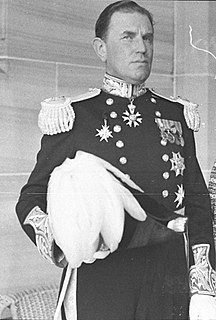 W
WJohn de Vere Loder, 2nd Baron Wakehurst, was a British Army officer, politician and colonial administrator. After serving in the army, the Foreign Office, and as a Conservative Member of Parliament (MP) in the House of Commons, Wakehurst was appointed as the last British Governor of New South Wales, which he held from 1937–46. Upon returning to Britain he was appointed Governor of Northern Ireland from 1952–64. He was made a Knight of the Order of the Garter in 1962 and died in 1970.
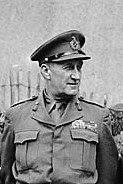 W
WGeneral Sir Lashmer Gordon Whistler,, known as "Bolo", was a British Army officer who served in both the world wars. A junior officer during the First World War, during the Second World War he achieved senior rank serving with Field Marshal Sir Bernard Montgomery in North Africa and North-western Europe from 1942 to 1945. Montgomery considered that Whistler "was about the best infantry brigade commander I knew". In peacetime, his outstanding powers of leadership were shown in a series of roles in the decolonisation process, and he reached the four-star rank of a full general, without having attended the Staff College, Camberley, then considered almost essential for an officer wishing to attain high rank, and which a significant majority of the British generals of the war had attended. This, in Richard Mead's words, was "proof that lacking a Staff College qualification was no barrier to advancement for the right man."
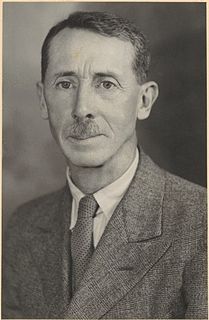 W
WHubert Massey Whittell OBE was a British army officer, and later an Australian farmer and ornithologist who compiled a history and bibliography of ornithology in Australia from its origins until the mid-20th century.
 W
WMajor-General James Charles Young (1858–1926) was a British Army officer.